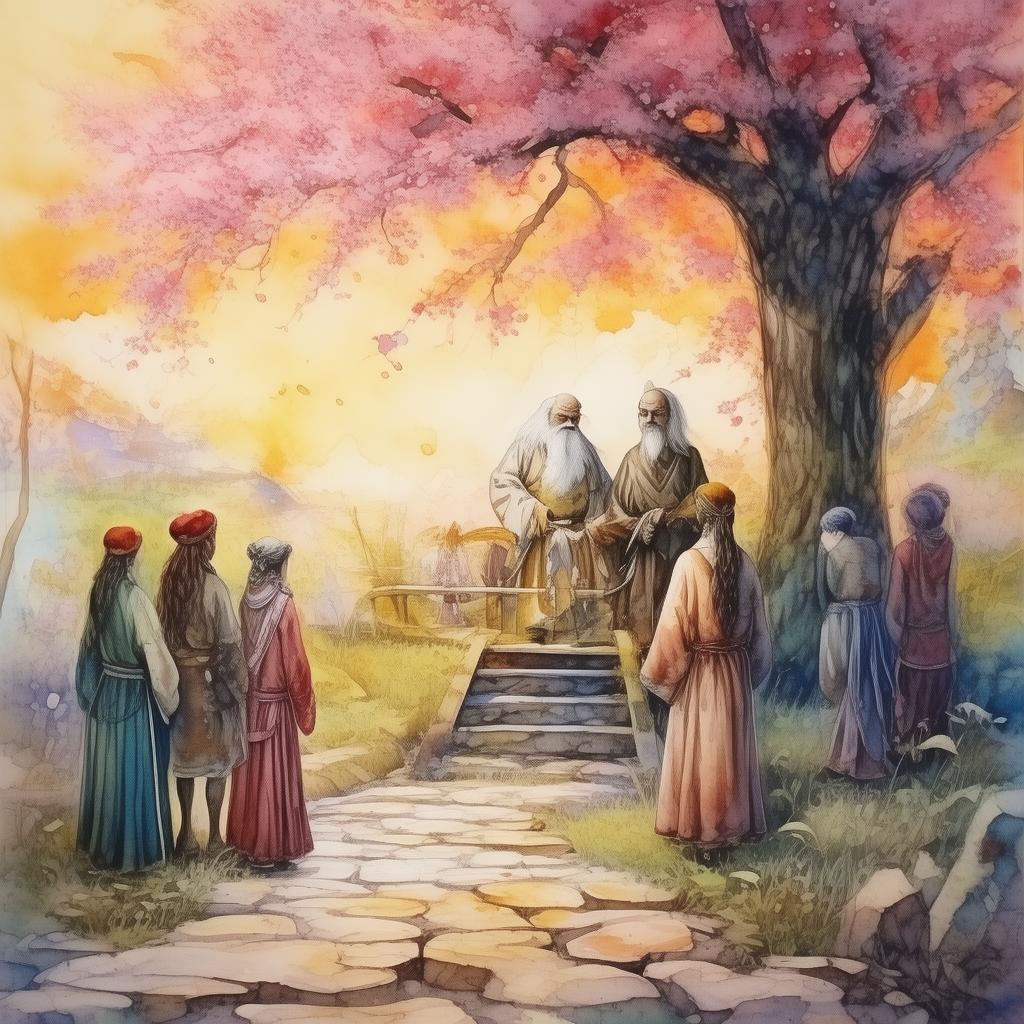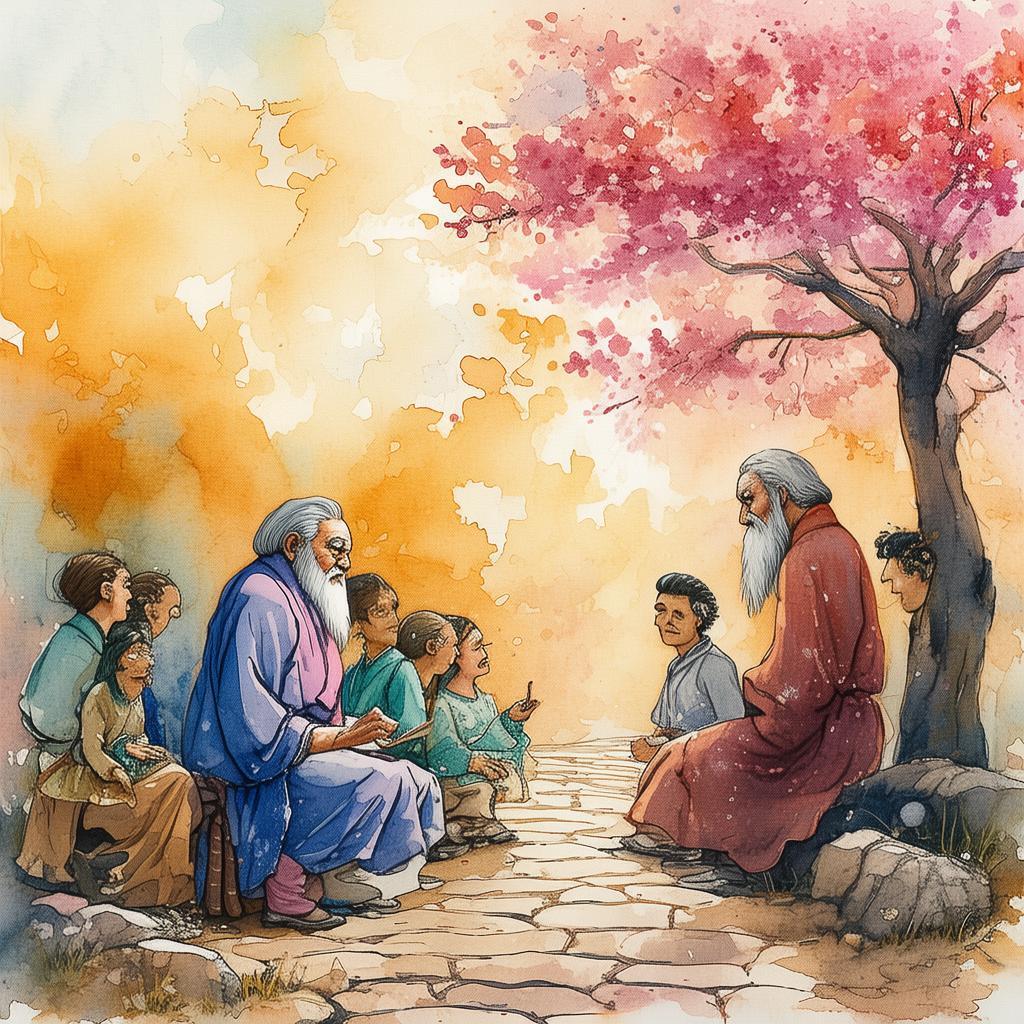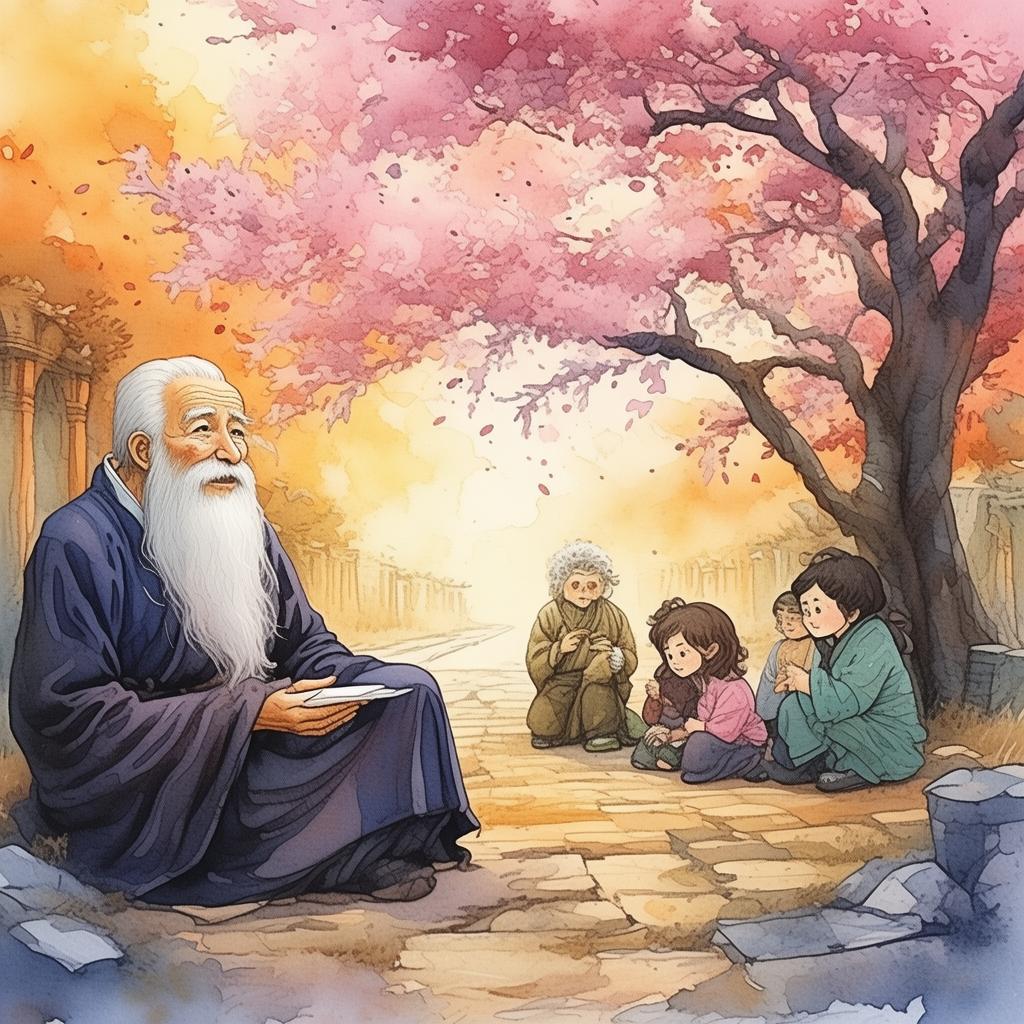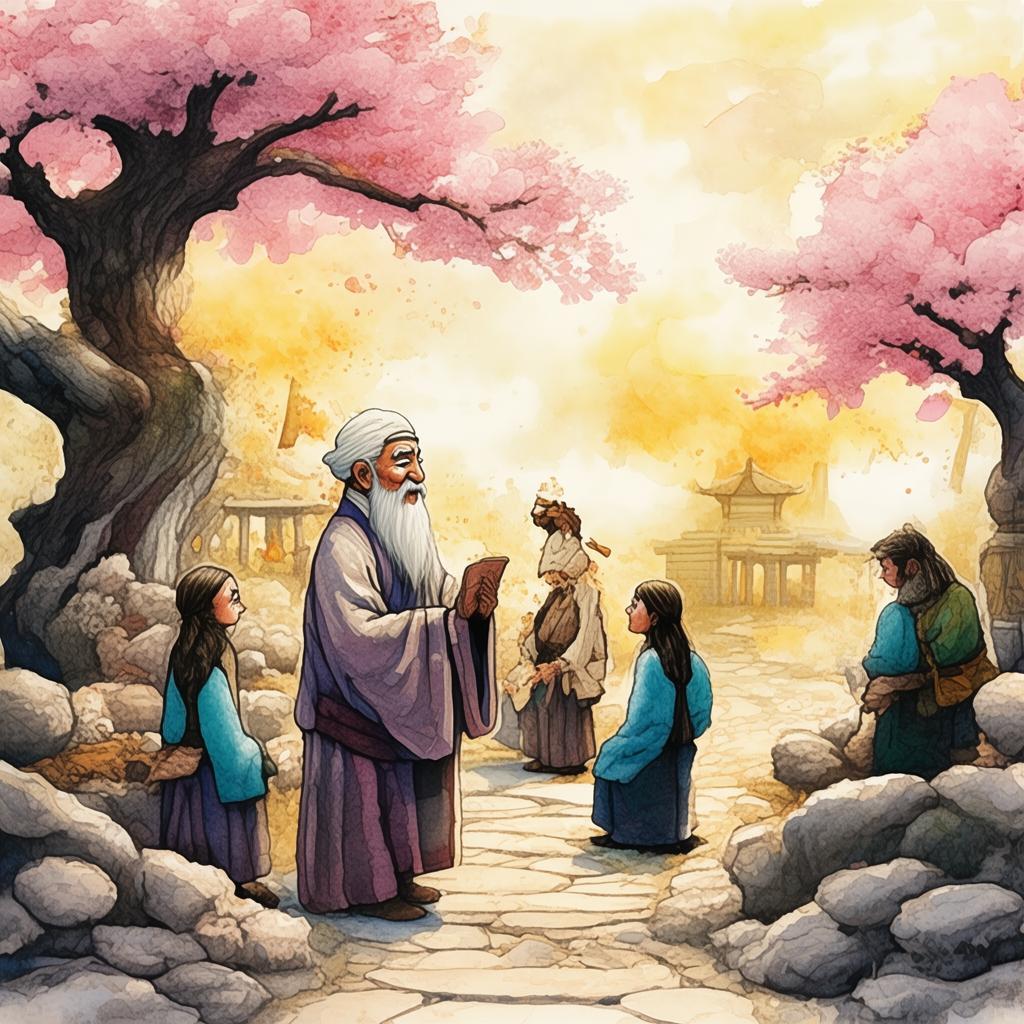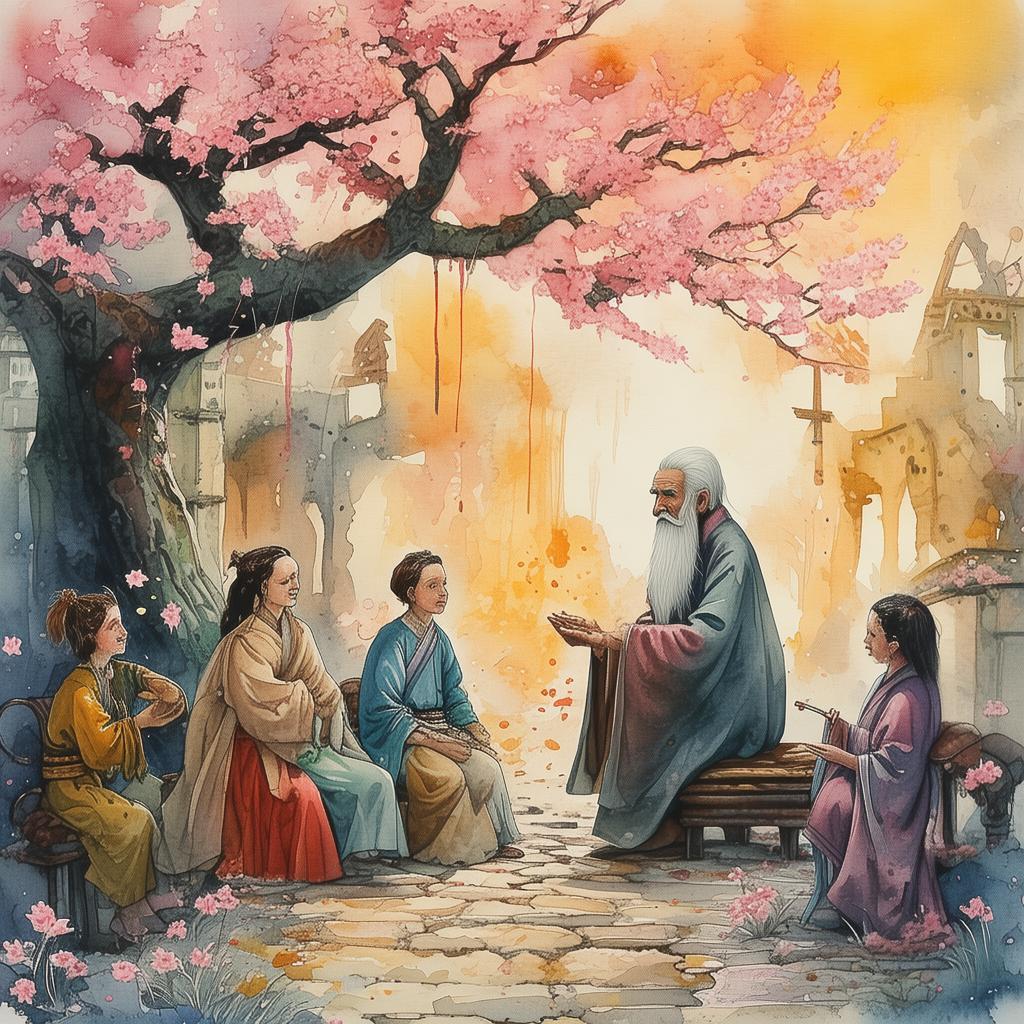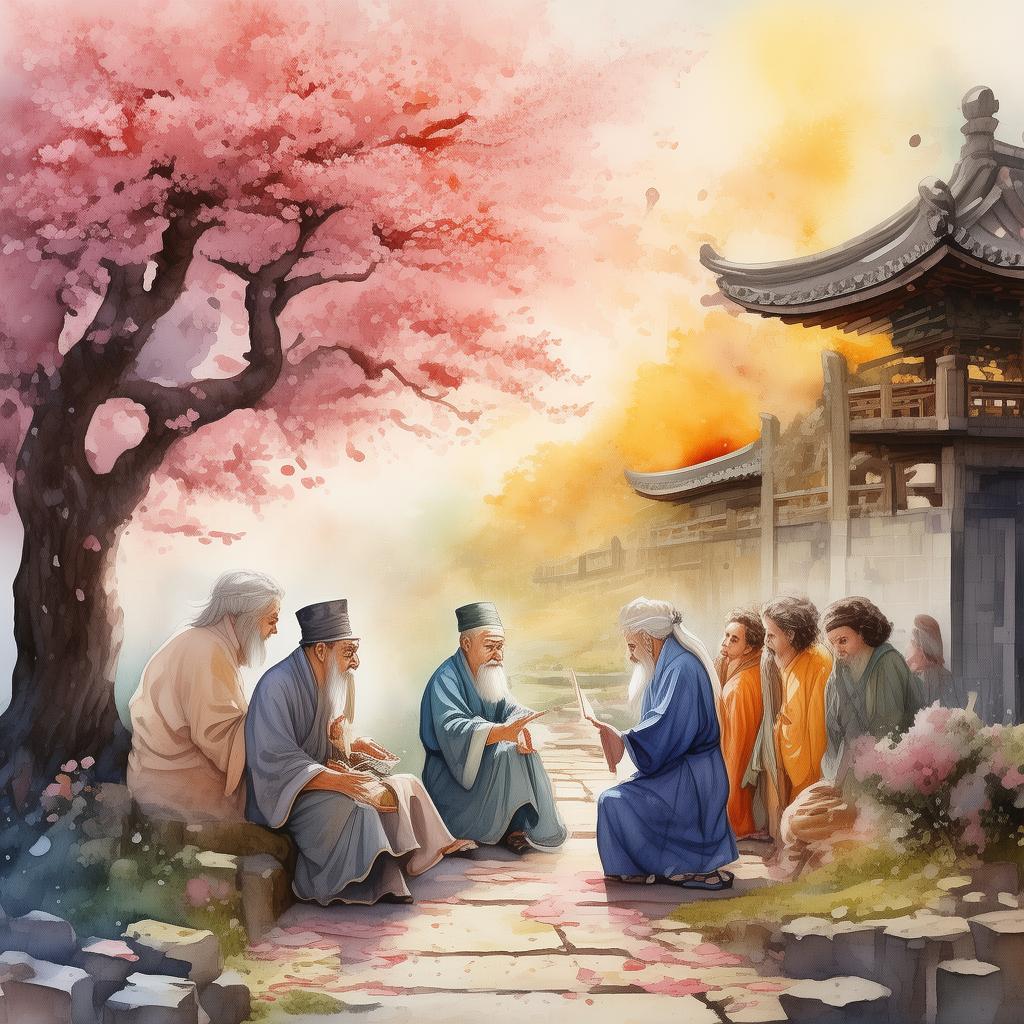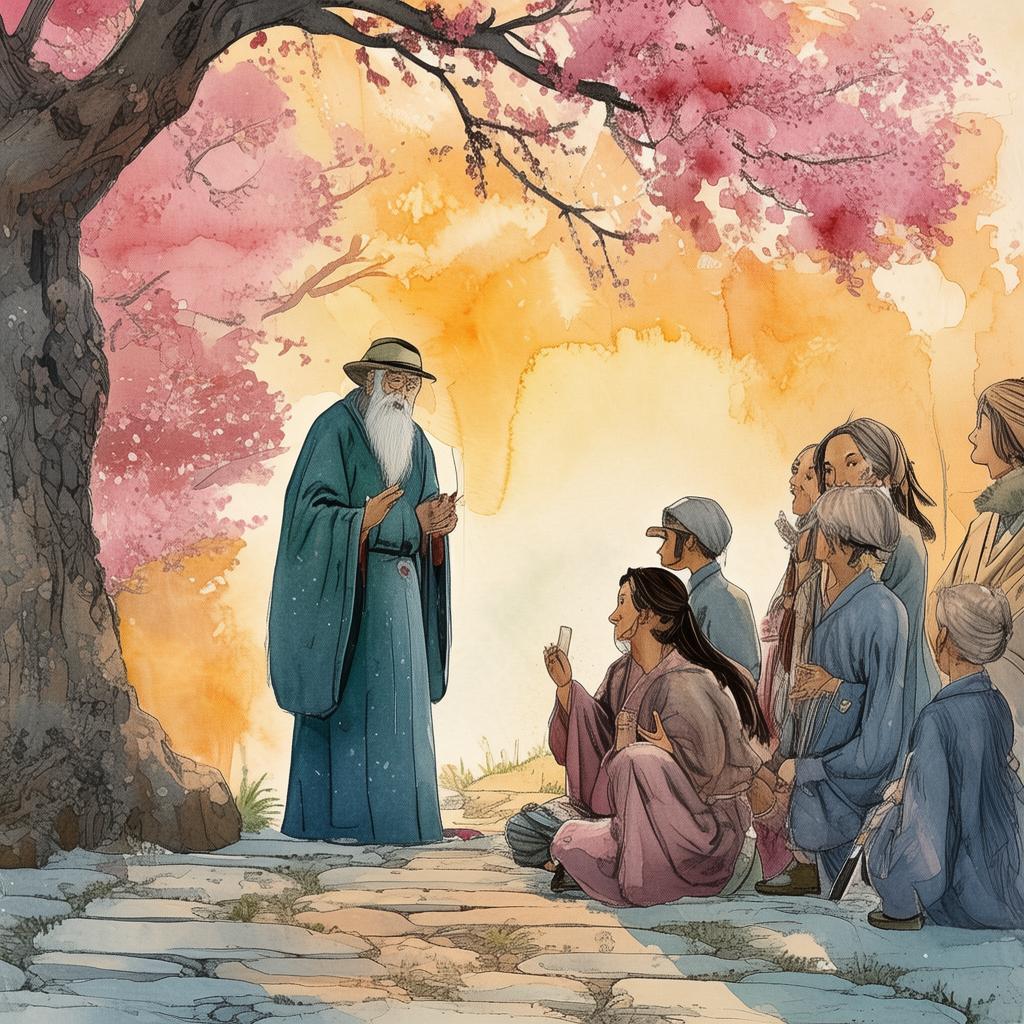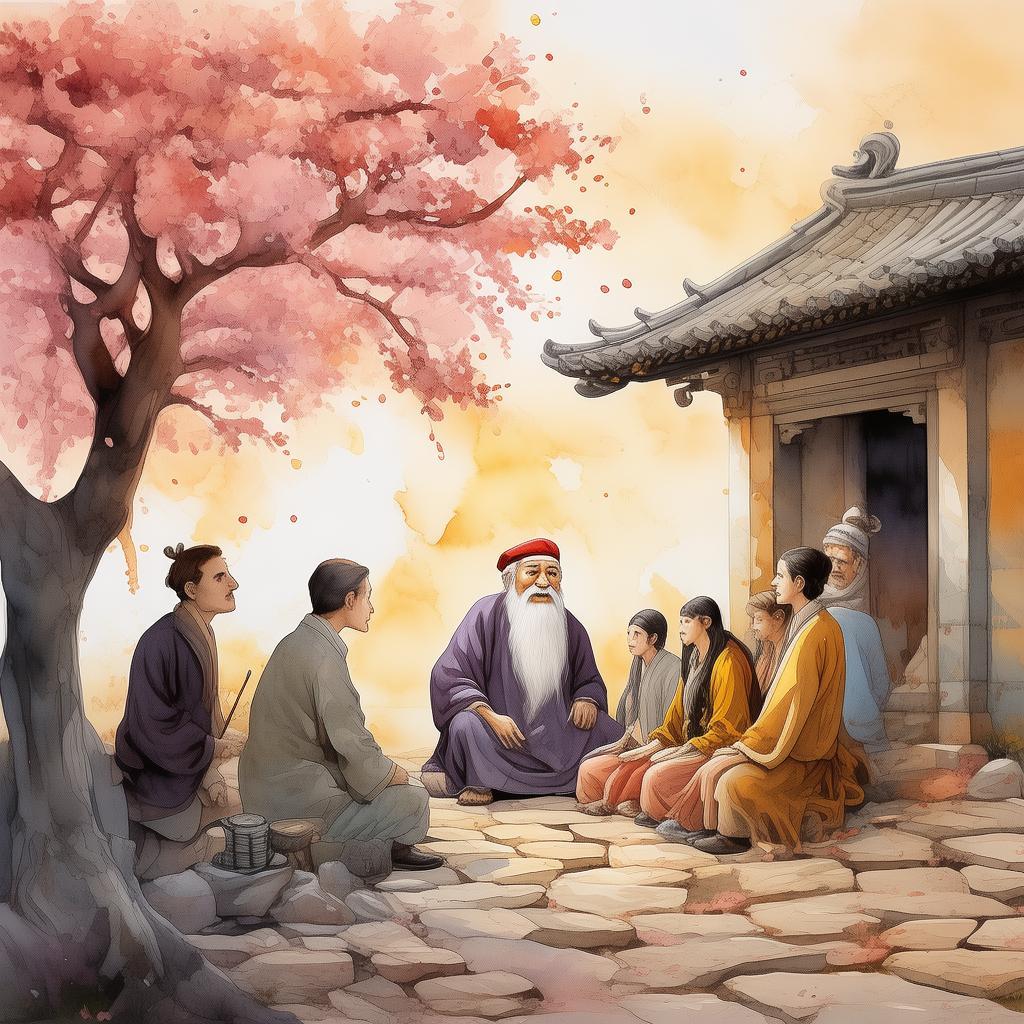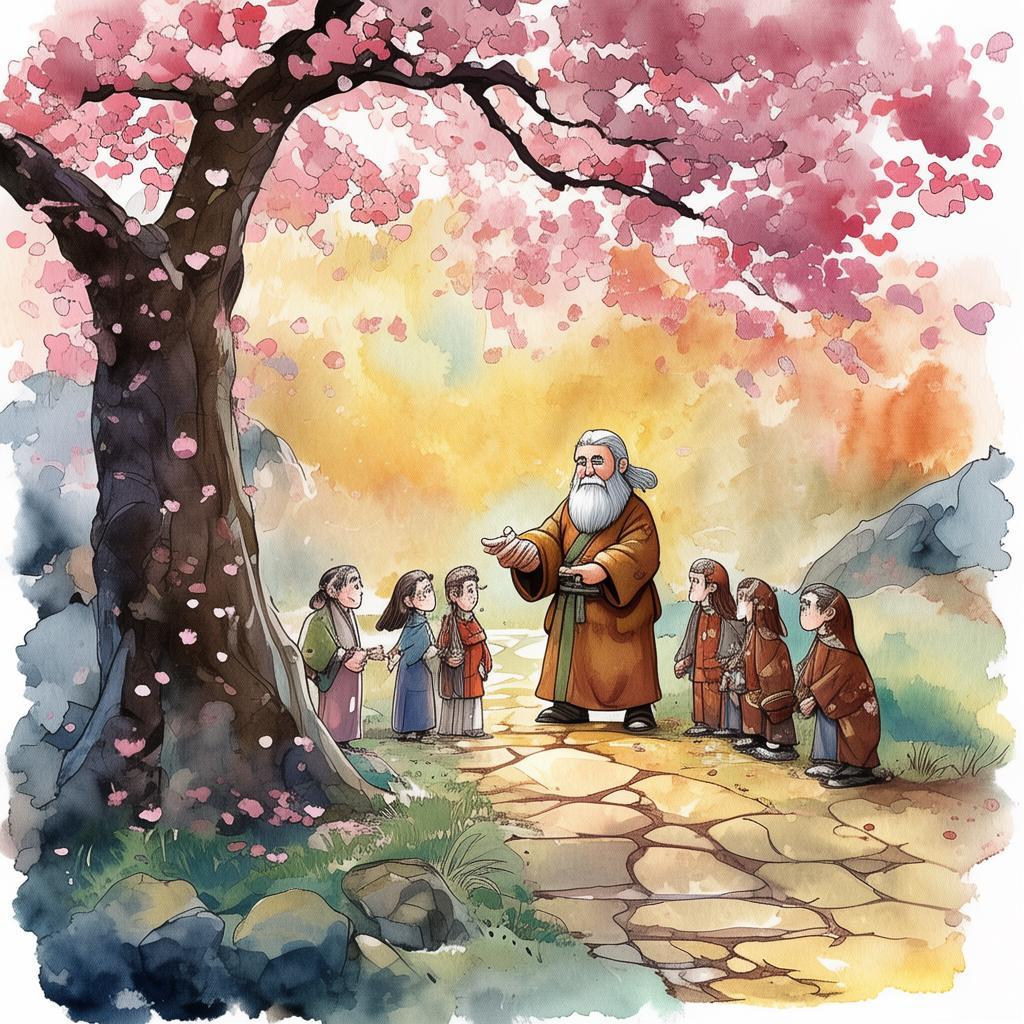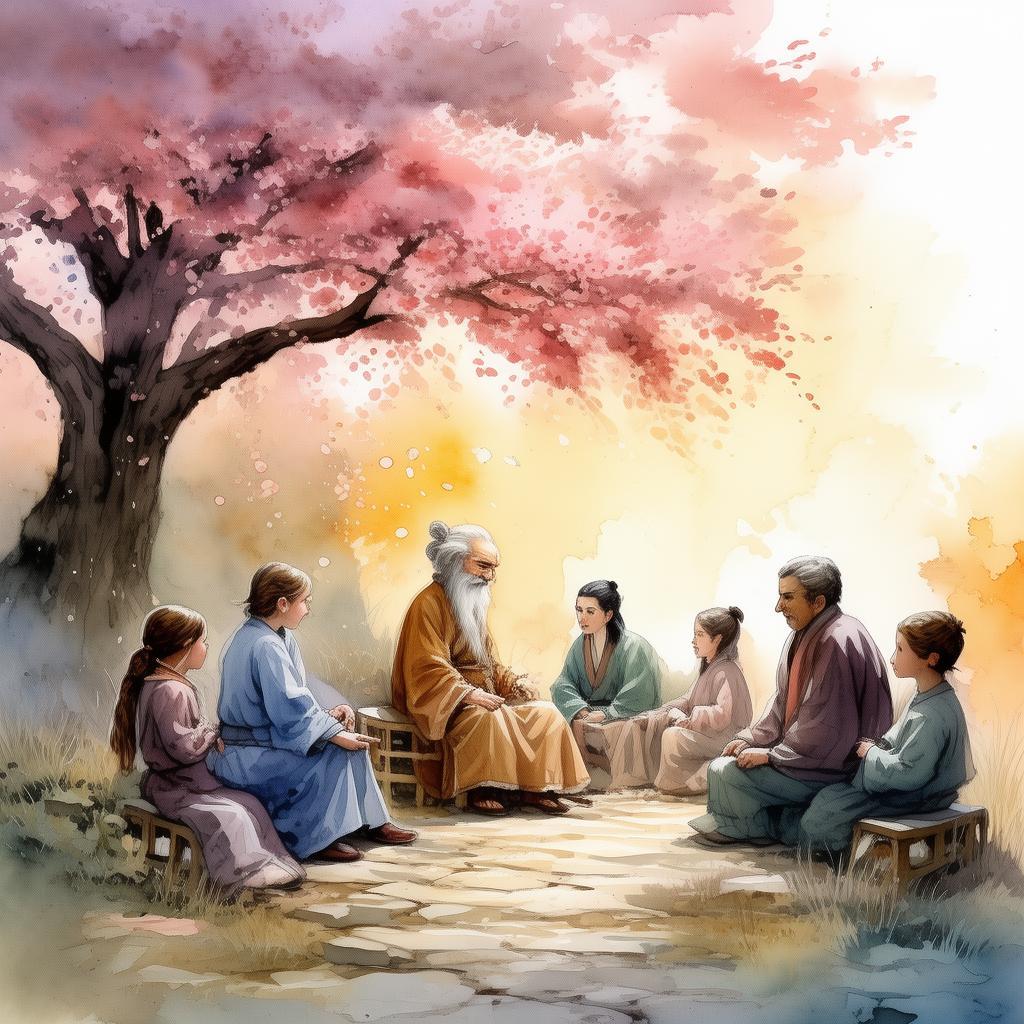From Kitchen to Jungle: The Chef's Roaring Adventure
In the bustling city of Shanghai, there was a chef named Li Wei, whose culinary skills were the talk of the town. His restaurant, "The Dragon's Roar," was a beacon of flavor and finesse, where every dish was a work of art. Li Wei, with his white apron and a twinkle in his eye, was known not just for his culinary prowess but also for his love of Chinese culture and idioms.
One evening, as Li Wei was preparing for the opening of his new dish, a mysterious letter arrived. It was an invitation to a rare auction, held in a secluded part of the city. The letter was adorned with an ancient symbol, a tiger's roar, and a hint of intrigue. Intrigued and with a dash of curiosity, Li Wei decided to attend the auction.
The auction was a lavish affair, with rich collectors and art enthusiasts gathered. As the items were presented, Li Wei's eyes were drawn to a peculiar artifact—a small, ornate box. The box was intricately carved with the same tiger's roar symbol that adorned the invitation. The auctioneer, a man with a knowing smile, announced that the box was said to contain a map leading to a hidden treasure, and it was up for grabs.
Li Wei's heart raced with excitement. He had always been fascinated by the legends of ancient China, and the thought of finding a treasure was too tempting to resist. He bid with all his might and, to his astonishment, won the box.
As he opened the box, he found not gold or jewels, but a scroll. The scroll was written in ancient Chinese characters, and Li Wei had to seek the help of a scholar to translate it. The scroll spoke of a hidden jungle, deep within the heart of a distant land, where the essence of a powerful idiom lay hidden. The idiom was "The Roar of the Tiger," a metaphor for the unyielding spirit and unexpected strength found in the most unlikely places.
Determined to uncover the truth behind the idiom, Li Wei sold his restaurant, packed his bags, and set off on a journey that would take him far from the kitchen and into the unknown.
The journey was arduous. Li Wei faced treacherous terrain, wild animals, and harsh weather. He often found himself questioning his decision to leave his beloved kitchen behind. But the memory of his grandmother's tales of the tiger's roar and the strength it symbolized kept him going.
One day, Li Wei stumbled upon a clearing in the dense jungle. In the center stood an ancient, weathered tree. At the base of the tree was a stone, upon which was etched the symbol of the tiger's roar. Li Wei's heart pounded with excitement as he realized he had found the place described in the scroll.
As he approached the stone, he noticed a hidden compartment within the tree. Inside was a small, ancient book. The book contained stories of people who had faced adversity and emerged stronger, their spirits roaring like a tiger. Each story illustrated the essence of the idiom "The Roar of the Tiger."
Li Wei spent days reading the book, learning about the resilience and determination of the people who had shaped the idiom. He realized that the true treasure was not the gold or jewels he had expected, but the knowledge and strength he had gained.
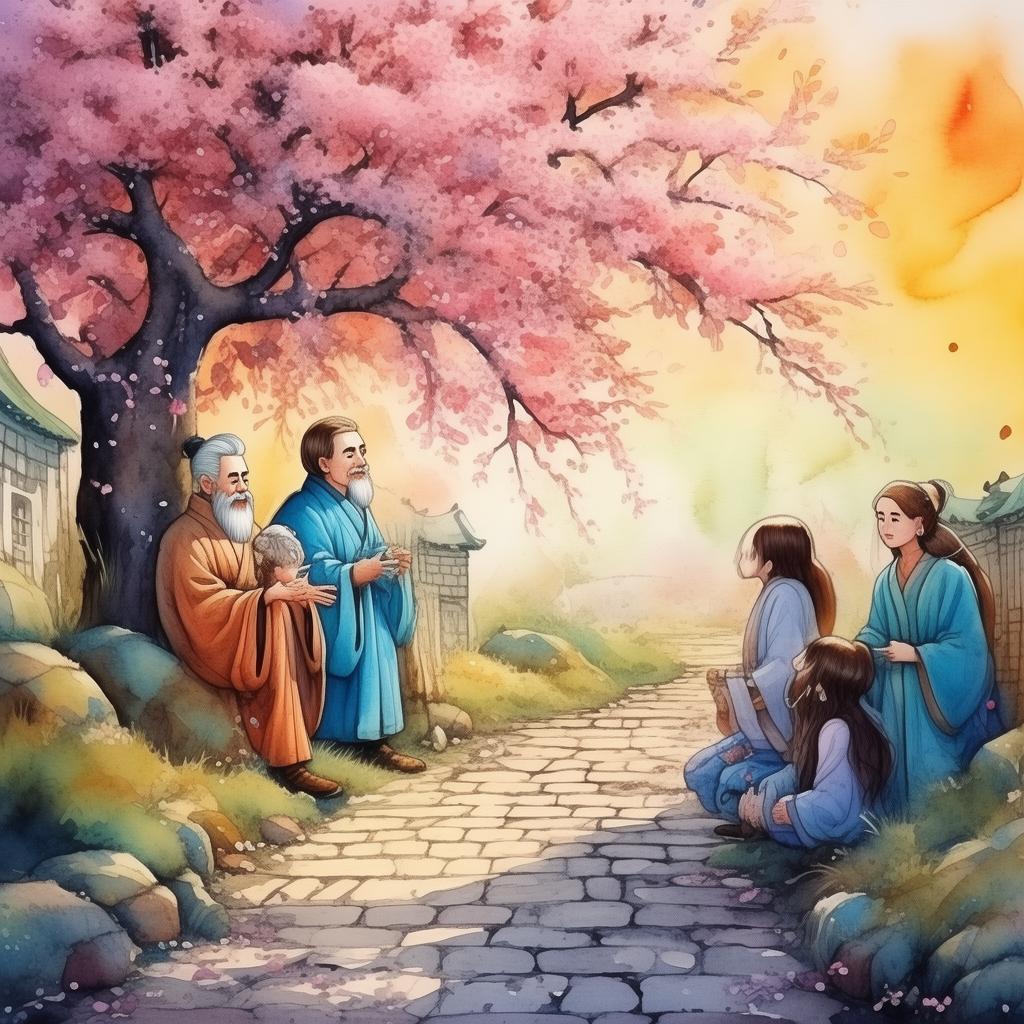
One night, as Li Wei sat by the fire, reflecting on his journey, he heard a rustling in the bushes. A tiger approached, its eyes glowing with a fierce intelligence. Li Wei, instead of fear, felt a sense of connection. He understood that the tiger's roar was not just a symbol of strength, but also of the wild spirit that resides within all living things.
Li Wei and the tiger shared a moment of mutual respect. In that moment, Li Wei knew that his journey had been more than a quest for treasure; it had been a journey of self-discovery and growth.
As he left the jungle, Li Wei carried with him not gold, but the stories and lessons he had learned. He returned to Shanghai, where he opened a new restaurant, "The Roar of the Tiger." This time, his focus was not just on creating exquisite dishes but also on sharing the stories of strength and resilience that had shaped his life.
Li Wei's restaurant became a place of inspiration, where people from all walks of life came to hear his tales and find strength in the unlikely hero who had found the true essence of the tiger's roar.
✨ Original Statement ✨
All articles published on this website (including but not limited to text, images, videos, and other content) are original or authorized for reposting and are protected by relevant laws. Without the explicit written permission of this website, no individual or organization may copy, modify, repost, or use the content for commercial purposes.
If you need to quote or cooperate, please contact this site for authorization. We reserve the right to pursue legal responsibility for any unauthorized use.
Hereby declared.
